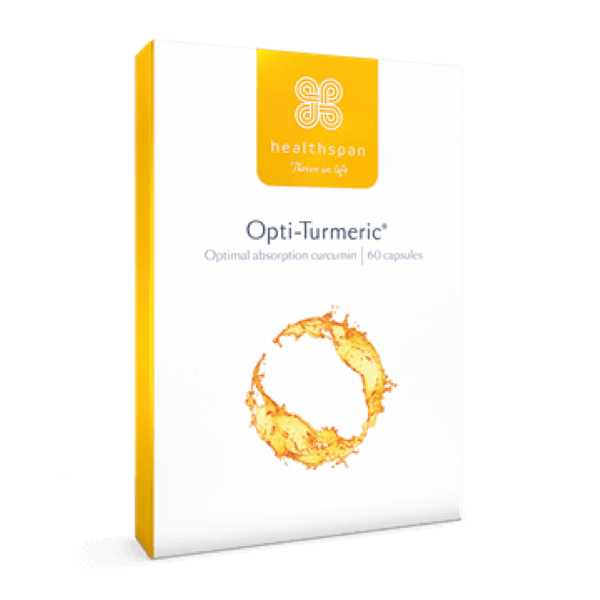Turmeric has long been used to support immunity. Karen Evennett examines the evidence.
🕒 4 min read
How turmeric can brighten up your immune system
The magic immune-boosting ingredient is curcumin – the compound that gives turmeric its yellow pigment.
Curcumin is a polyphenol with anti-inflammatory properties and the ability to boost the amount of antioxidants your cells can make.
Research now suggests that all the anti-inflammatory benefits we credit to turmeric may in fact be due to curcumin's ability to modulate the immune system.
As nutritional therapist Judy Watson from judywatsonnutritionist.co.uk explains, "Studies show it's a potent immunomodulatory agent that can modulate the activation of T cells, B cells, macrophages, neutrophils, natural killer cells, and dendritic cells." Furthermore, Watson says, "at low doses, curcumin can also enhance antibody responses."
Respiratory infections and viruses
"It's been found to reduce the severity of pneumonia and a multitude of viruses. And, combined with piperine (black pepper) in a supplement, it has significantly reduced weakness in patients with COVID-19.
"Although this was a small study, involving just 46 patients with COVID-19, it is significant in that the benefits were felt within just 14 days among participants who took two daily capsules of 500mg curcumin plus 5mg piperine."
Glandular fever
Further supporting its usefulness to the immune system is the fact that curcumin has been found to block Epstein-Barr virus (EBV), says Watson.
"EBV is very common and many people have had it without symptoms – but it's the trigger for Glandular Fever, and it can lay dormant and be reactivated when you are unwell.
"EBV and COVID-19 are caused by different viruses. However, separate studies this year and last year suggest that inflammation caused by COVID-19 may reactivate EBV in some people.
"As you could easily have EBV and not know it, anything that boosts the immune response and prevents it taking a hold is very welcome."

Opti-Turmeric
7 times faster-acting than standard turmeric
- Advanced liquid curcumin capsules
- Faster-acting and better absorbed than standard turmeric
- 500mg turmeric per capsule
Adding turmeric to your diet
"I often suggest that my clients add turmeric to soups for flavour. But, for its medicinal properties, you would have to take a supplement. Black pepper helps the absorption of curcumin, so that makes it all the more effective.
"How well it will work for you will depend on your current health status and your diet, though. It's important to cut out processed foods (and especially ultra-processed foods). Replace these with a broad and varied range of plant-based foods," Watson says.
"As ever, the better you generally look after yourself, the more effective at boosting your immune system your supplementation is likely to be."
Curcumin in turmeric has been found to benefit these essential components of the immune system.
T and B lymphocytes
Lymphocytes are white blood cells that play a critical role in keeping us healthy.
T cells protect us from pathogens such as bacteria, viruses and fungi and can also wipe out infected or cancerous cells. They also help B lymphocytes (B cells) to create antibodies that bind to pathogens and toxins and neutralise them so they can't enter a normal cell and cause infection.
T regulatory cells (TREGS)
These are your immune system's peacekeepers. They control or suppress other cells in the immune system, and are designed to send a signal to immunity to withdraw, pause an attack and stand down.
Without their regulation and molecules, the immune system can get out of control, attacking your body inappropriately.
For optimal health you need sufficient but not excessive regulation by TREGS. Your system is effectively walking a tightrope to maintain just the right balance: insufficient immunity (too many TREGS) may increase incidence of infections and cancer, while an over-enthusiastic immune system (too few TREGS) may lead to damage to your own organs.
Macrophages
Macrophages act like proactive mops in the immune system – they're white blood cells that surround and kill microorganisms, remove dead cells, and stimulate the action of other immune system cells.
Natural killer cells
Natural killer cells are killing machines that recognise changes in your own cells, killing them when they become infected with a virus.
Dotted around your body, but also making up 10 per cent of your white blood cells, they patrol and inspect each cell, responding to newly-formed tumours and any abnormal growth.
Dendritic cells
These are a special type of immune cell found in tissues, such as the skin, that boost the response of other immune system cells.
Read more: How Opti technology makes turmeric 185x better absorbed
Find out how liquid micellar technology makes turmeric 185x better-absorbed and 7x faster-acting.
Read more








